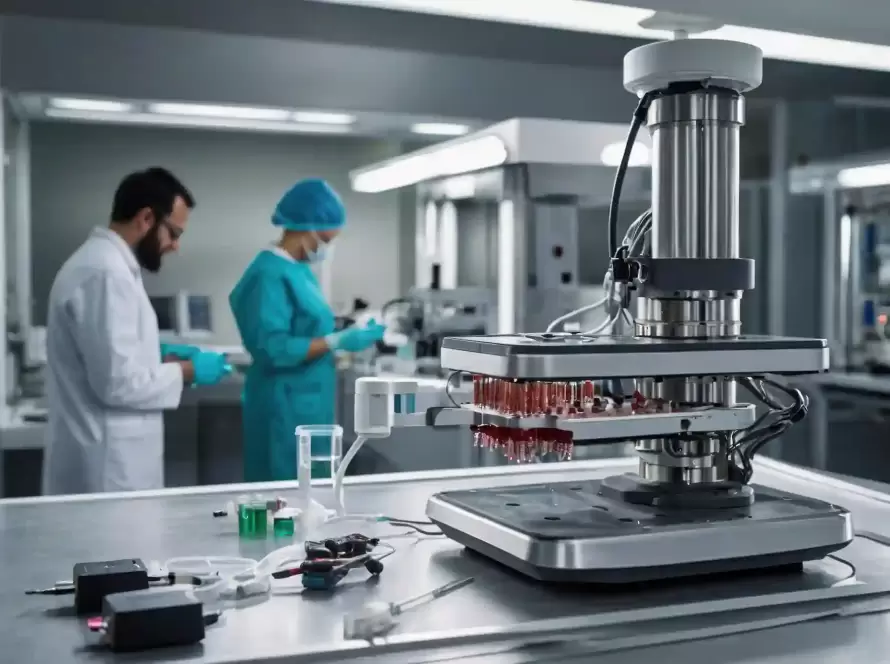Quality in manufacturing is crucial. Whether it’s pharmaceuticals, food products, or cosmetics, consumers anticipate that the products they use will be safe, effective, and free from potential hazards. This is where Good Manufacturing Practices (GMP) become essential. Good Manufacturing Practices (GMP) are quality assurance principles and guidelines designed to ensure products are consistently produced and controlled according to established quality standards. Regulatory agencies, such as the U.S. Food and Drug Administration (FDA), European Medical Agency (EMA), TGA Australia are the premier drug authorities that have set these standards to guarantee the quality, safety, and consistency of products throughout the manufacturing process, ensuring their safety and efficacy for public consumption. GMP applies to facilities, equipment, personnel, processes, documentation, and quality control. Its primary goal is to minimize risks associated with the production, packaging, labeling, and storage of products.

Ensuring that these trials meet international standards is critical, which is where Good Manufacturing Practice (GMP) comes into play. Good Manufacturing Practice (GMP) is applicable for all types of pharmaceutical products whether they are for research such as Global Clinical Trials or any other incremental product development activities or for promotion. GMP ensures that products are consistently produced and controlled according to quality standards, which is vital for maintaining the integrity of the pharmaceutical product required in global clinical trials or for market sale. By adhering to GMP, pharmaceutical manufacturers can guarantee that the investigational products used in global clinical trials are safe, pure, and effective, thereby protecting patient safety and ensuring reliable trial outcomes. Thus, the relationship between global clinical trials and GMP is fundamental to the advancement of safe and effective medical therapies worldwide. Good Manufacturing Practice (GMP) is essential for pharmaceutical manufacturers, ensuring that their products meet stringent quality standards and are safe for consumption. Adherence to GMP regulations helps these manufacturers maintain consistency, minimize risks of contamination, and avoid errors in production processes. By following GMP guidelines, pharmaceutical manufacturers not only comply with legal and regulatory requirements but also build trust with healthcare providers and patients, ensuring the efficacy and safety of their medications.
Good Manufacturing Practices (GMP) encompasses a comprehensive approach to all aspects of manufacturing, ensuring quality, safety, and efficiency. Key elements of GMP include:
- Facility Design and Maintenance: Manufacturing facilities must be designed, constructed, and maintained to prevent contamination, facilitate proper sanitation, and support smooth operational flow.
- Equipment and Calibration: GMP guidelines stress the importance of using regularly calibrated equipment to ensure accuracy and reliability in manufacturing processes.
- Personnel Training and Hygiene: GMP mandates employee training programs to ensure understanding and adherence to GMP procedures. This includes personal hygiene, proper clothing, handwashing, and regular health checks.
- Documentation and Recordkeeping: GMP requires detailed documentation of all manufacturing processes, including standard operating procedures (SOPs), batch records, quality control tests, and equipment maintenance logs. These records provide a traceable history and help identify and address any deviations or quality issues.
- Quality Control and Testing: GMP emphasizes robust quality control measures throughout the manufacturing process to ensure products meet required specifications. This includes in-process testing, sampling, and analysis.
- Supplier Qualification: GMP requires manufacturers to establish procedures for qualifying and auditing suppliers of raw materials, components, and services, ensuring that only approved and quality-assured materials are used in the manufacturing process.
- Continuous Improvement and Audits: GMP is a dynamic process that encourages continuous improvement. Regular internal and external audits help identify areas for improvement, detect non-compliance issues, and implement corrective actions.
Good Manufacturing Practices (GMP) play a vital role in ensuring the safety and quality of manufactured products. The importance of GMP can be seen in several key areas:
- Consumer Safety: GMP guidelines ensure that products are manufactured in a clean and controlled environment, utilizing proper sanitation practices. This minimizes contamination risks and protects consumers from potential harm.
- Product Quality: GMP emphasizes standardized processes, rigorous quality control measures, and regular inspections to ensure products consistently meet high-quality standards. This results in reliable and effective products that consumers can trust.
- Regulatory Compliance: Adhering to GMP regulations is mandatory in many industries, such as pharmaceuticals, food and beverages, dietary supplements, medical devices, and cosmetics. Non-compliance can lead to regulatory penalties, product recalls, and damage to a company’s reputation.
- International Standards: GMP provides a common framework for global manufacturing practices. Many countries have adopted GMP guidelines, facilitating easier export of products and maintaining consistent quality standards across different markets.

Good Manufacturing Practices are thus essential for ensuring the quality, safety, and consistency of manufactured products. Implementing GMP guidelines enables companies to meet regulatory requirements, protect consumer safety, and maintain a competitive market edge. By adhering to GMP principles, pharmaceutical manufacturers can instill consumer confidence, enhance their reputation, and contribute to a healthier and safer world.


